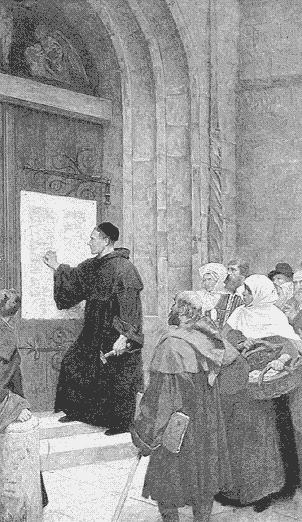By: Denford Ntini
The U.S. Conference of Catholic Bishops approved an agreement recognizing as valid the baptism of four Reformed Christian churches, during its fall general assembly in Baltimore.
The “Common Agreement on Mutual Recognition of Baptism,” has been the result of six years of study and discussion between the representatives of the U.S. Catholic bishops and the Presbyterian Church-USA, the Reformed Church in America, the Christian Reformed Church, and the United Church of Christ.
Noting that the approval was a “milesotne in the ecumenical journey,” Archbishop Wilton Gregory, chairman of the U.S.C.C.B. Committee for Ecumenical and Interreligious Affairs, said, “Together with our Reformed brothers and sisters…we Catholic bishops can once again affirm baptism as the basis of the real, even if incomplete, unity we share in Christ.”
The four Reformed communities must approve the common agreement, which will then “allow Catholic ministers to presume that baptisms performed in these communities are ‘true baptism’ as understood in Catholic doctrine and law.”
All four so-called Reformed churches practice the unbiblical form of baptism known as sprinkling (mostly of infants). Baptism by sprinkling is the all-important ritual that brings a person into the Catholic Church. A common agreement, means then that those who are baptized by these “Reformed communities” are actually accepted as Roman Catholics, whether they individually want to be or not. For the Reformed churches to make such a grand concession clearly overthrows what little protestantism they may still have.
The Holy See speaks “great words against the Most High” and “magnifies himself,” instead of humbling herself and conforming to the clear testimony of Scripture. Her forms of baptism, the mass and other rituals and teachings are in conflict with Holy Scripture.
Biblical baptism is a public declaration of a personal conscious decision to follow Christ and live according to the doctrines of the Bible, not teachings based on a tradition or consensus with other churches. It is not merely a ritual, but a public testimony of a change of heart and life.
Catholics and Reformed Christians “have moved one step closer to that fullness of communion…” said Archbishop Gregory, “on that day when together we can celebrate in oneness of faith and ministry at the one holy table of the Eucharist.”
The popes have made the ecumenical movement a top priority in their quest to get all the world to worship according to their rules or principles (see Revelation 13:8). The ultimate goal of the ecumenical movement is to bring the churches into full, visible, sacramental unity around the Roman Catholich eucharist.
The fast-paced ecumenical movement is rapidly bringing the world to the place where the Holy See will “sit a queen” (Revelation 18:7). With such concessions as these churches have made to the Holy See, it will not be long.
To find unity with Rome, the protestant churches are making major concessions. This will eventually lead to persecution of those who don’t agree with the ecumenical unity promoted by Rome.
“When the leading churches of the United States, uniting upon such points of doctrine as are held by them in common, shall influence the State to enforce their decrees and to sustain their institutions, then Protestant America will have formed an image of the Roman hierarchy, and the infliction of civil penalties upon dissenters will inevitably result.” Great Controversy, p. 445
The undiluted preaching from God’s Word and an authoritative stand on truth are declining. The gospel is now so broad that it accepts all believes, even contradictory ones. The growing emphasis on inclusion and tolerance means that churches must redefine the principles of faith. Ecumenism has come to mean reducing all elements of faith to the lowest common denominator. God’s Word is neglected, experience is valued above truth, a false and selfish “faith” is promoted, and sound doctrine and correction are despised as “divisive” and “unloving.”
“Romanism is now regarded by Protestants with far greater favor than in former years. In those countries where Catholicism is not in the ascendancy, and the papists are taking a conciliatory course in order to gain influence, there is an increasing indifference concerning the doctrines that separate the reformed churches from the papal hierarchy; the opinion is gaining ground that, after all, we do not differ so widely upon vital points as has been supposed, and that a little concession on our part will bring us into a better understanding with Rome. The time was when Protestants placed a high value upon the liberty of conscience which had been so dearly purchased. They taught their children to abhor popery and held that to seek harmony with Rome would be disloyalty to God. But how widely different are the sentiments now expressed!” Great Controversy, p. 563.
skip to main |
skip to sidebar


"If ye keep my commandments, ye shall abide in my love; even as I have kept My Father's commandments and abide in His love." John 15:10.


“I see a very dark cloud on America’s horizon, and that dark cloud is coming from Rome.’’ - Charles Chiniquy (1809-1899), Fifty Years in the Church of Rome, The Wickliffe Press, Protestant Truth Society, Wickliffe Avenue, 104 Hendon Lane, Finchley, London, N3., 1885, p. 510.

"I have long been decided in opinion that a free government and the Roman Catholick religion can never exist together in any nation or Country." "Liberty and Popery cannot live together." - John Adams, 2nd President of the United States

"I do not like the late Resurrection of the Jesuits. They have a General, now in Russia, in correspondence with jesuits in the U.S. who are more numerous than everybody knows. Shall We not have Swarms of them here? In as many shapes and disguises as ever.... In the shape of printers, Editors, Writers, School masters, etc. If ever any Congregation of men could merit, eternal Perdition on Earth and in Hell... it is this Company of Loyola." - Thomas Jefferson, 2nd President of the United States

"It is my opinion that if the liberties of this country — the United States — are destroyed, it will be by the subtlety of the Roman Catholic Jesuit priests, for they are the most crafty, dangerous enemies to civil and religious liberty. They have instigated most of the wars in Europe."- General Marquis De Layfayette

"All worship of images and saints, is an abomination to God; it is idolatry, which is strictly forbidden in the Bible." - American lexicographer and statesman Noah Webster

"I hope that the last day is at the door. Things could not become worse than the Roman see makes it. It suppresses the commandments of God, it exalts its own commandments above God's. If this is not Antichrist, then some one else must tell what it is." - Luther's Reformatory Works," p. 280. Copenhagen: 1883.





"And the dragon was wroth with the woman, and went to make war with the remnant of her seed, which keep the commandments of God, and have the testimony of Jesus Christ." Revelation 12:17

His People will Stand Unmoved
In the midst of the time of trouble --trouble such as has not been since there was a nation-- His chosen ones will stand unmoved. Satan with all the hosts of evil cannot destroy the weakest of God's saints. Angels that excel in strength will protect them, and in their behalf Jehovah will reveal Himself as a "God of gods," able to save to the uttermost those who have put their trust in Him. PK 513
My YouTube Channels
Favorite Links
"If ye love Me, keep my commandments"

"If ye keep my commandments, ye shall abide in my love; even as I have kept My Father's commandments and abide in His love." John 15:10.
Till Heaven and Earth Pass
Think not that I am come to destroy the law or the prophets; I am not come to destroy, but to fulfill. - Matt. 5:17
For verily I say unto you, Till heaven and earth pass, one jot or one tittle shall in no wise pass from the law, till all be fulfilled. - Matt. 5:18
Whosoever therefore shall break one of these least commandments, and shall teach men so, he shall be called the least in the kingdom of heaven: but whosoever shall do and teach them, the same shall be called great in the kingdom of heaven. - Matt. 5:19
For verily I say unto you, Till heaven and earth pass, one jot or one tittle shall in no wise pass from the law, till all be fulfilled. - Matt. 5:18
Whosoever therefore shall break one of these least commandments, and shall teach men so, he shall be called the least in the kingdom of heaven: but whosoever shall do and teach them, the same shall be called great in the kingdom of heaven. - Matt. 5:19

President Lincoln's Prophecy

“I see a very dark cloud on America’s horizon, and that dark cloud is coming from Rome.’’ - Charles Chiniquy (1809-1899), Fifty Years in the Church of Rome, The Wickliffe Press, Protestant Truth Society, Wickliffe Avenue, 104 Hendon Lane, Finchley, London, N3., 1885, p. 510.
Adams on Liberty and Popery

"I have long been decided in opinion that a free government and the Roman Catholick religion can never exist together in any nation or Country." "Liberty and Popery cannot live together." - John Adams, 2nd President of the United States
Jefferson knew the Danger

"I do not like the late Resurrection of the Jesuits. They have a General, now in Russia, in correspondence with jesuits in the U.S. who are more numerous than everybody knows. Shall We not have Swarms of them here? In as many shapes and disguises as ever.... In the shape of printers, Editors, Writers, School masters, etc. If ever any Congregation of men could merit, eternal Perdition on Earth and in Hell... it is this Company of Loyola." - Thomas Jefferson, 2nd President of the United States
The French General's Prophecy

"It is my opinion that if the liberties of this country — the United States — are destroyed, it will be by the subtlety of the Roman Catholic Jesuit priests, for they are the most crafty, dangerous enemies to civil and religious liberty. They have instigated most of the wars in Europe."- General Marquis De Layfayette
Noah Webster on Idolatry

"All worship of images and saints, is an abomination to God; it is idolatry, which is strictly forbidden in the Bible." - American lexicographer and statesman Noah Webster
Luther Identified the Antichrist

"I hope that the last day is at the door. Things could not become worse than the Roman see makes it. It suppresses the commandments of God, it exalts its own commandments above God's. If this is not Antichrist, then some one else must tell what it is." - Luther's Reformatory Works," p. 280. Copenhagen: 1883.
The Number of a Man

No Fear but the Fear of God

Zealous, ardent, and devoted, knowing no fear but the fear of God, and acknowledging no foundation for religious faith but the Holy Scriptures, Luther was the man for his time; through him God accomplished a great work for the reformation of the church and the enlightenment of the world. When the papal bull reached Luther, he said: "I despise it, and resist it, as impious and false. . . . It is Christ himself who is condemned therein." "I glory in the prospect of suffering for the best of causes. Already I feel greater liberty; for I know now that the pope is antichrist, and that his throne is that of Satan himself."
Digital Books
John Wycliffe's Wisdom

Wycliffe the great reformer wrote: “Christ is truth, the Pope is the principle of falsehood. Christ lived in poverty, the Pope labours for worldly magnificence. Christ refused temporal dominion, the Pope seeks it.”
"Keep Them Separate"

Precious,Truth Filled Books
Martin Luther Stood Alone

To the reproaches of his enemies, who taunted him with the weakness of his cause, Luther answered: "Who knows if God has not chosen and called me to perform this needed work, and if these babblers ought not to fear that by despising me, they despise God himself? They say I am alone; no, for Jehovah is with me. In their sense, Moses was alone at the departure from Egypt; Elijah was alone in the reign of King Ahab; Isaiah was alone in Jerusalem; Ezekiel was alone in Babylon. Hear this, O Rome: God never selected as a prophet either the high priest or any great personage; but rather, he chose low and despised men, once even the shepherd Amos. In every age the saints have been compelled to rebuke kings, princes, recreant priests, and wise men at the peril of their lives." "I do not say that I also am a prophet; but I do say that they ought to fear precisely because I am alone, while on the side of the oppressor are numbers, caste, wealth, and mocking letters. Yes, I am alone; but I stand serene, because side by side with me is the Word of God; and with all their boasted numbers, this, the greatest of powers, is not with them."
A Precious, Truth-filled Book
BIBLE READINGS FOR THE HOME
There are 300 Scripture topics in question and answer form in this paperback book of 654 pages. Typically a question is asked and a Bible verse printed in response. Frequently there is a further explanatory note.

Read it ONLINE or, if you have a United States or Canadian post office address, Project Restore will be happy to send a complimentary copy of this book to you (limit = one copy per person). For your convenience, we have provided a request form that you can fill in and submit online, or print and mail to us.
Source: Project Restore
There are 300 Scripture topics in question and answer form in this paperback book of 654 pages. Typically a question is asked and a Bible verse printed in response. Frequently there is a further explanatory note.

Read it ONLINE or, if you have a United States or Canadian post office address, Project Restore will be happy to send a complimentary copy of this book to you (limit = one copy per person). For your convenience, we have provided a request form that you can fill in and submit online, or print and mail to us.
Source: Project Restore
Blog Archive
-
►
2025
(1)
- ► March 2025 (1)
-
►
2014
(10)
- ► April 2014 (2)
- ► March 2014 (5)
- ► February 2014 (1)
- ► January 2014 (1)
-
►
2013
(6)
- ► November 2013 (2)
- ► March 2013 (1)
- ► February 2013 (1)
- ► January 2013 (1)
-
►
2012
(7)
- ► September 2012 (2)
- ► April 2012 (1)
- ► March 2012 (2)
- ► January 2012 (1)
-
►
2011
(48)
- ► December 2011 (7)
- ► November 2011 (4)
- ► October 2011 (5)
- ► September 2011 (4)
- ► August 2011 (4)
- ► April 2011 (4)
- ► March 2011 (2)
- ► January 2011 (6)
-
▼
2010
(406)
- ► December 2010 (10)
-
▼
November 2010
(12)
- Brinkmanship in the Koreas
- US Catholic Bishops Approve Baptism Accord with Ch...
- Vatican Should be Treated as a “Rogue State”
- Electromagnetic Pulse Likely
- 50 Years of Ecumenism to be Celebrated by Vatican
- Hurricane Worsens Change of Cholera Outbreak in Po...
- U.S. Economy a “Fiscal Trainwreck”
- Earthquake, Tsunami & Volcano, all on the same day
- Pope Attempts History Revision
- Pope Will Speak to 150 Million in Barcelona
- Bernanke: U.S. Debt Load Unsustainable
- Benedict XVI: “We Are One Family”
- ► October 2010 (18)
- ► September 2010 (114)
- ► August 2010 (89)
- ► April 2010 (24)
- ► March 2010 (21)
- ► February 2010 (5)
- ► January 2010 (5)

0 comments:
Post a Comment